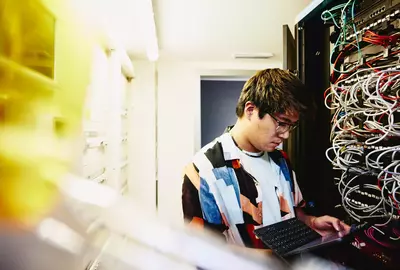Technology may have changed how we create and send thank-you notes; otherwise, they’re mostly unchanged. Once handwritten and delivered by courier or snail mail, today’s thank-you notes are most often sent by email. But the principle behind why we send them remains the same.
A thank-you note sent after a job interview may not guarantee you’ll get the job. Nor will not sending a note kick you out of the running. It might be the turning point that sets you apart from another candidate when all things between you are equal.
A brief, well-written thank-you note tells the interviewer that you acknowledge and appreciate. You're saying thank you for the time and effort they took with you during the hiring process. It confirms your positive impression. If well written, it says you paid attention to detail and were present and thoughtful during and after your interview.
Go the extra mile; it’s a small effort to impress prospective employers. A thank you note helps to close the loop on the opportunity. Like a great dessert, a thank you note tops off the meal that was your interview.
things to keep in mind for an interview thank you email
A thank you note is an integral part of the job searching process. We highly recommend sending one no later than 24 hours after your interview. Here are some things you should remember when you write your thank you note after an interview.
email after an interview
Send a thank-you as soon as possible. Email allows you to craft and hit ‘send’ within a day of the interview. You want to keep your profile front and center.
If it’s been more than a day, you’re sending a follow-up, not a thank-you note. A follow-up email has a different tone than a thank-you email.
In your follow-up email, maintain a kind and proactive tone. Express your continued interest in the position. You can also take the chance to speak about any other questions or worries that popped up during the interview. This a great way to show you're serious about the job role.
thank them for the opportunity
Avoid a perfunctory ‘thanks for your time.’ Instead, take advantage of this opportunity to reiterate your eagerness for the opportunity. Remind the hiring manager of the value you’d bring.
Share your interest in the position. After you've thanked them for their time, show your enthusiasm for the role. highlighting specific skills or experiences that align with the company's needs. This helps to show your commitment and leaves a lasting impression on the hiring manager.
Keep it short and concise. No more than a paragraph or two.
need more help with your interview preparation? we're here for you!
get more tipsinclude additional information
A thank you note is also your chance to fill gaps or deal with issues raised during the interview process. Consider including links to your website portfolio and LinkedIn profile. This can make it easy for the hiring to check out more of your credentials and accomplishments.
Don't forget to include your contact information. Including your contact information ensures the hiring manager can easily contact you. Plus, it offers reassurance and convenience.
include everyone in the email
Include everyone who interviewed you or, better still, send separate emails to each person. Ensure you don’t just copy and paste – sometimes, they compare emails. You can change up the emails enough to avoid carbon copying while keeping the pertinent information consistent.
keep the tone friendly
Keep the tone of the thank-you in keeping with the interview atmosphere. Stay professional; avoid being too casual or familiar.
Match the tone of the interview in your thank email. Was the interview professional? Then, use a professional tone in your email. Match that in your email if the interview was more laid-back and casual.
Matching the tone in your thank you email. This will help to show that you understand their company culture.
proofread before hitting send
When you’re finished, proofread the email before sending it. Now, you need to proofread the email once again. After this, you should share it with a friend or family member to have them proofread it. You don't want any mistakes in your email.
Nothing puts interviewers off more than poor grammar, spelling or needless mistakes. While a well-written thank-you note may not get you the job, a poorly constructed one could ensure you don’t.
write in a confident tone
Don’t let a lack of confidence in your writing skills keep you from sending a thank-you note. Online, there are many templates that you can use to create your own. You don’t need to be a poet laureate; you just need to communicate simply, effectively and professionally.
Many recruiters are on the fence about the value of thank-you notes. You won’t know whether the person who interviewed you cares one way or the other about receiving one. Just like great cover letters, why wouldn’t you send one to try and impress them?
At least, it’ll demonstrate your good manners and professionalism. And that has never been a bad thing.



